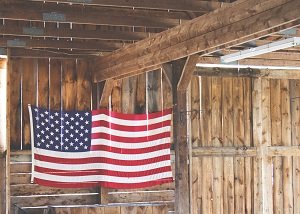History research paper example is a written academic work that aims to summarize the research done by the researcher in the field of historical sciences. History research paper example relies heavily on scientific sources and facts, although unlike most papers of scientific study, it may also include personal arguments of the researcher towards certain causes of a particular historical event. A history research paper is a paper that aims not just to reveal a set of historical facts but to argue against or towards their actual historical preconditions.
 The American Civil War is one of the most controversial topics for debate in American history. While most agree that the main theme that accompanied the unfortunate events of the war were the opposing views on the issue of slavery, one may reveal that the actual causes of the civil war may be more complex. When attempting to conduct a thorough research on the preconditions of the American Civil War, one may reveal that they had a complex sociopolitical and economical character. As the research suggests, while slavery certainly played a role, the social, political, economical, and even cultural differences served as the main causes of the American Civil War.
The American Civil War is one of the most controversial topics for debate in American history. While most agree that the main theme that accompanied the unfortunate events of the war were the opposing views on the issue of slavery, one may reveal that the actual causes of the civil war may be more complex. When attempting to conduct a thorough research on the preconditions of the American Civil War, one may reveal that they had a complex sociopolitical and economical character. As the research suggests, while slavery certainly played a role, the social, political, economical, and even cultural differences served as the main causes of the American Civil War.
During the period of the early and middle 19th century, the United States were drastically divided into the North and South. Both regions had significant sociopolitical differences. The South was mostly an agricultural region with dominating conservative hierarchic political views mimicking those of the United Kingdom. Every region of the South had landlords – its local kings, or dukes, who were at the top of the social chain, while at the bottom there were slaves of African origin. There was no perspective of climbing up in the hierarchy, as the state of affairs was considered to be permanent. The region largely depended on export of agricultural goods which were shipped from plantations to Europe, and thus, on manual labor.
The North, on the other hand, was heavily industrialized and socially diverse. Compared to the conservative clan-like system of the South, in the Northern states any entrepreneur could aim to find success in business despite his/her origin and social status. The society was not divided into workers and landlords, neither was it divided by race and/or ethnic background. One could say that it was multicultural. As a result, both regions were at a state of a cultural clash when it came to sociopolitical interaction. The apogee came when the North received political dominance through the election of Abraham Lincoln as the president and attempted to enforce its views on the population of the South. The abolishing of slavery was one of such policies that the North promoted.
One of the main preconditions that led to the unrest in the South was when the federal government attempted to declare the federal tariff legislation in South Carolina in 1832. The economical and political situations differed greatly in the North and South, thus, one may consider that the Northern policies were not exactly fit for the South environment. As South Carolina refused to accept the tariff, the federal government used the army in order to enforce its will. After that, the authority of the federal government fell low. South Carolina was the first state to leave the Union in 1860, opening a whole line of Southern states to leave and join the opposition.
While slavery surely was a factor that was largely debated between the North and the South, it was neither the main, nor the only cause of the Civil War. During the period of the middle of 19th century America was strictly divided into South and North by political views, social standards, and economical conditions. It was a clash between a highly innovative industrial society and a conservative agricultural hierarchy. One may conclude that the American Civil War is one of history’s most vivid examples on how misunderstanding and prejudice between two seemingly similar but distinctive cultural environments is capable of leading to bloodshed and unfortunate sociopolitical consequences.
References
- Keegan. J. (2010). The American Civil War: A Military History. Vintage. (1-15)
- Ransom L. R. (2016). The Economics of the Civil War. Economic History Association. (1-3)
- Trueman C. N. (2015). Causes of the American Civil War
- Weber J. (2016). American Civil War. United States History. Encyclopedia Britannica
- Zinn. H. (2012). A People’s History of the United States. New Press. (149-171)